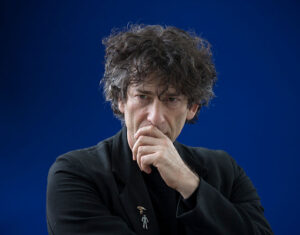You’d think that Suffs, a play about women’s suffrage, would be considered to be pretty progressive. It’s currently playing on Broadway, and has enjoyed broadly positive reviews from all the usual outlets. Yet earlier in the year, this most liberal of liberal shows was nonetheless assailed. In July, activists stormed the Music Box Theatre mid-performance, and began chanting demands for the musical’s cancellation. Just to make their point clear, they also unfurled a banner, emblazoned with the words “Suffs Is a White Wash”.
As that last phrase implies, and a quick glance at the protest the Cancel Suffs website confirms, the protesters are ultimately unhappy about Suffs for one fundamental reason: the whiteness of its feminism. A self-declared group of “radical, anti-racist, queer” feminists, the group rejects the idea that “white women are always aligned with progressive causes” — even as they attack Suffs for underplaying the supposed racism of those early electoral reformers. Taken together, in fact, Suffs is nothing less than “a betrayal” of the next generation of feminists.
The chaos in July is far from unique. At least according to a certain kind of intersectional feminist — the sort of person who believes trans women are women and sex work is work — “white feminists” are now to blame for everything. Consider, to give one example, the wild popularity of the “Karen” slur, an implicit (or sometimes not-so-implicit) attack on white women standing up for themselves. Then there’s the explosion of books. The titles speak for themselves: White Tears/Brown Scars: How White Feminism Betrays Women of Color; The Othered Woman: How White Feminism Harms Muslim Women; Against White Feminism; The Problem With White Feminism.
The latest to land is Faux Feminism: Why We Fall for White Feminism and How We Can Stop by Serene Khader. An academic at the CUNY Graduate Center, Khader credits white feminists with propagating five key myths, devoting a chapter to each. Demolishing everything from the claim that feminism is about personal freedom, to the fantasy that it aims to free individual women, Khader clearly sets her sights high.
But as a feminist myself, albeit of the white variety, what Khader seems to constitute as feminism feels utterly unrecognisable. Every “myth” she dispels, after all, is nothing more than an invention of liberal “lean in” feminists. Quite aside from the infamous shallowness of such people, they’re anyway a group that includes both white and non-white women. The idea that Khader is somehow demolishing the racial monolith of white feminism therefore feels rather implausible. In any case her liberal targets — white, affluent, #girlbossy — don’t include robust, grassroots feminists like me and countless others around the world.
Not that Khader’s actual arguments are much better. Unlike their white counterparts, for instance, she claims women of colour have always had to work outside the home. Really? There is no such thing as wealthy black or brown households? Then there’s the facile cultural relativism. White women are accused of contributing to the destruction of traditional cultures, even as Khader argues on several occasions that prior to colonisation, indigenous Americans enjoyed pretty much total gender equality. For such a sweeping claim, you might have imagined Khader would have rallied a host of serious scholars to her cause. No such luck. Instead, she cites Kim TallBear, a Native American academic who claims that non-monogamous lifestyles are a “decolonizing project” that challenge “settler sexuality”.
And though laughable, at least that idea can basically be understood. That’s not always true, for instance when the author claims that when looking at victims of gender-based violence, “people are being targeted to preserve the hypervaluation of masculinity, and victims are not only people who were assigned female at birth”. I have no idea what Khader means by this. Maybe my white feminist brain just isn’t up to such intersectional wisdom.
In a sense, it’s almost too easy to mock Faux Feminism, filled to bursting with all that pseudointellectual nonsense. Yet I think that Khader and the rest really matter. After all, every addition to the “white feminist” stable ultimately mischaracterises what mainstream feminism actually is. Rather than seriously engaging with a serious ideology, with a history and deep internal debates, it instead creates a strawman. Feminism, Khader and her colleagues disingenuously argue, is now about little more than lipstick and promotions at work.
And if that’s bad enough for feminism generally — though the girlbosses should surely be criticised, there’s clearly more to us than that — books like Faux Feminism are equally poisonous from a racial perspective. Not once in over 40 years of activism have I witnessed an actual feminist advocate for white women exclusively. Indeed, I spent my early years in the women’s liberation movement, throughout the Eighties, discussing real intersectionality: how feminism had to represent and include all women or progress meant nothing. From abortion rights to tackling male violence, I have never been in a group that wasn’t racially and ethnically diverse.
That’s equally true when it comes to specific struggles. Consider polygamy, which many of the black and Asian feminists I’ve worked with consider a form of patriarchal control. Yet Khader dismisses this view as “white imperialism” — handily ignoring the fact that many ex-Muslim women abhor Islamism and the culture it brings. If, then, the “white feminism” slur is sexist, it’s also racist. By refusing to give women of colour any agency in shaping their own feminism, it patronisingly assumes that they’re simply been duped by their nefarious white sisters.
I don’t want to be unfair here. Khader certainly writes well, and parts of her book are meticulously researched. The chapter on the “individualism myth” — where she outlines the history of women’s unacknowledged labour — was especially enlightening. Yet between generalisation and cliche, she ultimately only succeeds in ignoring most of what feminists, white or not, have achieved over the last century or more. Say what you like about Susan B. Anthony, and even by the standards of her age, she was fairly progressive on matters of race, surely better that she prodded women towards the ballot box than simply stay at home? That isn’t to say, of course, that feminism begins or ends with Suffs. It’s just that the march of women’s liberation is a long one, and every step in the road deserves to be remembered.
That’s especially true given plenty of women alive right now would surely love something as simple as the vote. As the Taliban steps up its torture of women and girls in Afghanistan, and increasing numbers of females worldwide find themselves shackled by Sharia, those that dismiss “white feminism” equally dismiss the millions of non-white women who expect support from their sisters in the West. Then again, as an academic at CUNY, or anyway an activist with time to picket musicals, it’s presumably easy to set these questions aside.
Disclaimer
Some of the posts we share are controversial and we do not necessarily agree with them in the whole extend. Sometimes we agree with the content or part of it but we do not agree with the narration or language. Nevertheless we find them somehow interesting, valuable and/or informative or we share them, because we strongly believe in freedom of speech, free press and journalism. We strongly encourage you to have a critical approach to all the content, do your own research and analysis to build your own opinion.
We would be glad to have your feedback.
Source: UnHerd Read the original article here: https://unherd.com/



